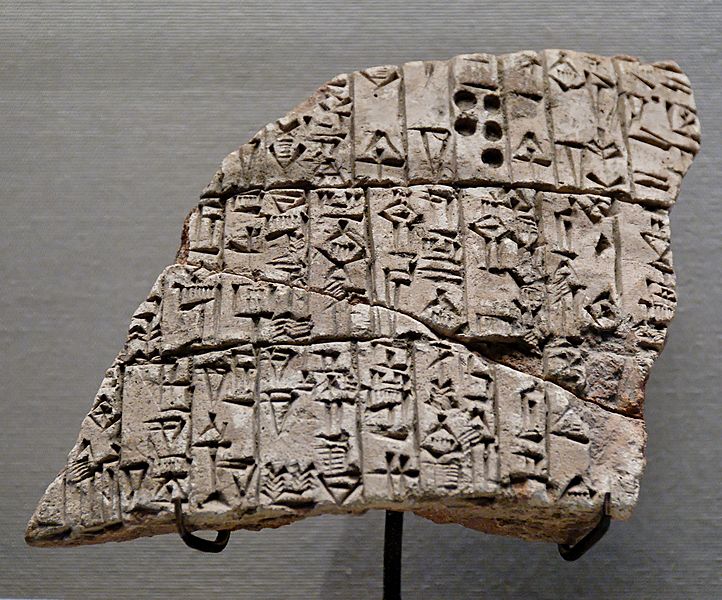The legal code was a common feature of the legal systems of the ancient Middle East. The Sumerian Code of Ur-Nammu (c. 2100-2050 BC), then the Babylonian Code of Hammurabi (c. 1760 BC), are amongst the earliest and best preserved legal codes,[citation needed] originating in the Fertile Crescent.
Urukagina
Image may be NSFW.
Clik here to view.
Fragment of an inscription of Urukagina
Urukagina (reigned ca. 24th century BC?, short chronology), the king of Lagash, established the first known legal code to protect citizens from the rich and powerful. Known as a great reformer, Urukagina established laws that forbade compelling the sale of property and required the charges against the accused to be stated before any man accused of a crime could be punished. This is the first known example of any form of due process in the history of humanity. However, his laws were otherwise typically brutal for Mesopotamia, including the stoning of women for having multiple husbands.
In this important code is found the first written reference to the concept of liberty (amagi or amargi, literally, “return to the mother”), used in reference to the process of reform. The exact nature of this term is not clear, but the idea that the reforms were to be a return to the original social order decreed by the gods fits well with the translation.
Image may be NSFW.
Clik here to view.
Gudea
Gudea, Urukagina, and the Mesopotamian Origin of the Concept of Liberty
Filed under: Uncategorized Image may be NSFW.
Clik here to view.
 Image may be NSFW.
Image may be NSFW.Clik here to view.

